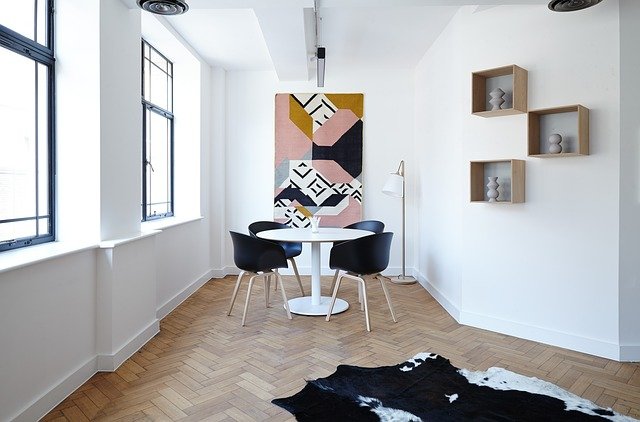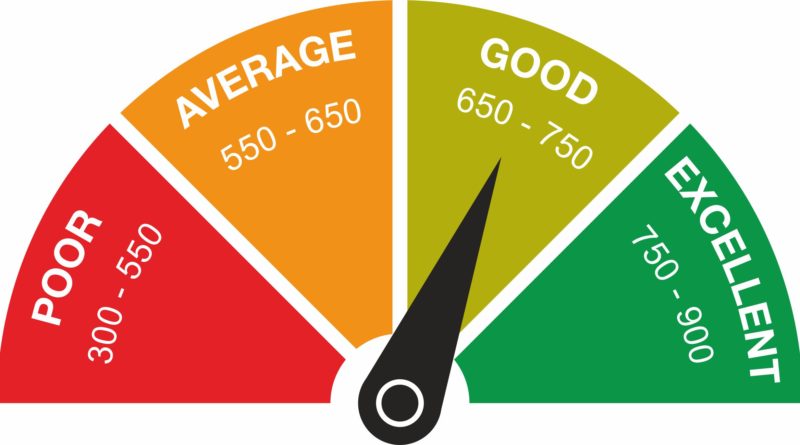Credit Score: A credit score tells much more than the loans you need to get or the interest rates you pay. Credit scores are the financial tools. The credit score is the most significant measure of your financial health. If your credit score Is good, it will be very easy for you to get approved for loans or credit lines. Credit scores open the way of the lowest available interest.
There are multiple reasons for having a good credit score. Credit scores offer you to buy things with borrowed money that is paid back over time. It helps you manage big expenses easily, you can also manage daily expenses with the use of a credit card.
If you are looking to qualify for big loans, the lender looks into various factors, including checking your gross income and debt-to-income ratio. Your employment history is also verified.
Lenders also depend upon the automated evaluation process that includes checking your credit card score and credit history to determine how likely you are to pay your debts on time.
Credit Score
A credit score is a three-digit number that is premeditated by applying a mathematical algorithm, and three credit reports are created, which are updated based on credit accounts.
Higher the credit score, higher will be your chances to qualify for loans with more favorable terms like low-interest rates and potentially low fees. A credit score determines your eligibility for a mortgage.
Building and maintaining strong credit goes into your favor while applying for a mortgage. When the lender looks at the history, he gets to know that you have paid all the loans as agreed and have used credit wisely, and he gets confident when qualifying you for a mortgage.
Credit score has become a very significant part of our financial lives, and keep track of your financial situation. Many companies provide credit card solutions to their clients who are facing low credit score issues or have a poor credit history.
A low credit scores
A low credit score can have repercussions. If you are used to paying bills after the due date or submit fees late, it will affect the score of the credit score. A low credit score makes it very difficult for you to get loans in the future. It makes it hard even to land a certain job.
- Poor credit score makes it difficult to get loans or to qualify for credit accounts.
- If you get the loan, the interest rate will be very high
- You will find it difficult to get a job as an employee to run a credit check before offering you a job, especially if the person is applying for a management position, as it involves handling money.
On the other hand, balancing a good credit score helps you save money and helps you in financial aspects. Establishing a credit score is very important and has many advantages.
Significant Saving on Interest Rates
Interest rate is the amount charged by the lender for borrowing the money. If you are borrowing some amount from the company, you will have to pay interest on the borrowed amount.
A good credit score helps you to be eligible for the best interest rate. With a low credit score, there is a greater chance that you will not qualify for the loan. Even if you avail the loan, you will be charged with a high-interest rate.
With a good credit score, you will not have to pay high charges on credit card loans. The less money you pay in interest, the quicker you pay the debt, and then you can get more money for expenses.
Better Loan Approval
As already mentioned, a decent credit score is very important for getting approval for the mortgage. Poor credit history makes it difficult for you to get loan approval.
Although a good credit score does not guarantee you loan approval, it increases your chance of being approved for credit. So, you can apply for a mortgage with assurance.
More Power to Negotiate Terms
A decent credit score provides you the power to negotiate on a low-interest rate while taking the loan. If you want to bargain on a loan depending upon the credit score, you can get a better offer grounded on your score.
While with a low credit score, you will have extreme difficulty in finding loan options, and if by luck you get the loan, you will have to agree on all the terms and conditions.
Better Rates on Insurance and More Housing Options
Insurance companies use information about your credit score and credit report to develop your risk score. The people with low credit scores are disapproved, while people with good credit scores are required to pay less for the insurance.
Considering these and many other aspects, many clients look for credit score solutions so that they can have a better credit score and avail all the benefits of loan and mortgage.
A few landlords or rental management firms lookout for potential buyers’ credit scores to see if they are financially trustworthy. A higher credit score creates a sense of trust, and you are more likely to get approved of the house with a better credit score.
Things You Can Do
If you want to approve your credit score, there are many things that you can do on your behalf before consulting any firm or organization
- Make sure to pay at least the minimum balance
- Keep your credit use low by paying down the credit card balance
- Do not apply for too many new credit cards and try not to close old one’s
Review Credit Card Report
If you want to improve your credit score, reviewing a credit card report helps to know what will be working in your favor. You can get a copy of the report and review it to understand what is affecting your score. Check your credit score for the errors and other issues that can drag down the score.
Handle Bill Payments
Payment history affects your credit score greatly; therefore, it is crucial to pay the debts, including old loans. If you are paying bills on time, it will work in your favor. You can simply improve your score by avoiding late payments. Keep track of your monthly bills, setting alerts of the due date so that you do not forget to pay the bills. Automating a bill payment system from a bank account also saves you from many troubles.
There are multiple reasons for having a good credit score. Credit scores offer you to buy things with borrowed money that is paid back over time. It helps you manage big expenses easily, you can also manage daily expenses with the use of a credit card.
If you are looking to qualify for big loans, the lender looks into various factors, including checking your gross income and debt-to-income ratio. Your employment history is also verified.
Lenders also depend upon the automated evaluation process that includes checking your credit card score and credit history to determine how likely you are to pay your debts on time.
Credit Score
A credit score is a three-digit number that is premeditated by applying a mathematical algorithm, and three credit reports are created, which are updated based on credit accounts.
Higher the credit score, higher will be your chances to qualify for loans with more favorable terms like low-interest rates and potentially low fees. A credit score determines your eligibility for a mortgage.
Building and maintaining strong credit goes into your favor while applying for a mortgage. When the lender looks at the history, he gets to know that you have paid all the loans as agreed and have used credit wisely, and he gets confident when qualifying you for a mortgage.
Credit score has become a very significant part of our financial lives, and keep track of your financial situation. Many companies provide credit card solutions to their clients who are facing low credit score issues or have a poor credit history.
A low credit scores
A low credit score can have repercussions. If you are used to paying bills after the due date or submit fees late, it will affect the score of the credit score. A low credit score makes it very difficult for you to get loans in the future. It makes it hard even to land a certain job.
- Poor credit score makes it difficult to get loans or to qualify for credit accounts.
- If you get the loan, the interest rate will be very high
- You will find it difficult to get a job as an employee to run a credit check before offering you a job, especially if the person is applying for a management position, as it involves handling money.
On the other hand, balancing a good credit score helps you save money and helps you in financial aspects. Establishing a credit score is very important and has many advantages.
Significant Saving on Interest Rates
Interest rate is the amount charged by the lender for borrowing the money. If you are borrowing some amount from the company, you will have to pay interest on the borrowed amount.
A good credit score helps you to be eligible for the best interest rate. With a low credit score, there is a greater chance that you will not qualify for the loan. Even if you avail the loan, you will be charged with a high-interest rate.
With a good credit score, you will not have to pay high charges on credit card loans. The less money you pay in interest, the quicker you pay the debt, and then you can get more money for expenses.
Better Loan Approval
As already mentioned, a decent credit score is very important for getting approval for the mortgage. Poor credit history makes it difficult for you to get loan approval.
Although a good credit score does not guarantee you loan approval, it increases your chance of being approved for credit. So, you can apply for a mortgage with assurance.
More Power to Negotiate Terms
A decent credit score provides you the power to negotiate on a low-interest rate while taking the loan. If you want to bargain on a loan depending upon the credit score, you can get a better offer grounded on your score.
While with a low credit score, you will have extreme difficulty in finding loan options, and if by luck you get the loan, you will have to agree on all the terms and conditions.
Better Rates on Insurance and More Housing Options
Insurance companies use information about your credit score and credit report to develop your risk score. The people with low credit scores are disapproved, while people with good credit scores are required to pay less for the insurance.
Considering these and many other aspects, many clients look for credit score solutions so that they can have a better credit score and avail all the benefits of loan and mortgage.
A few landlords or rental management firms lookout for potential buyers’ credit scores to see if they are financially trustworthy. A higher credit score creates a sense of trust, and you are more likely to get approved of the house with a better credit score.
Things You Can Do
If you want to approve your credit score, there are many things that you can do on your behalf before consulting any firm or organization
- Make sure to pay at least the minimum balance
- Keep your credit use low by paying down the credit card balance
- Do not apply for too many new credit cards and try not to close old one’s
Review Credit Card Report
If you want to improve your credit score, reviewing a credit card report helps to know what will be working in your favor. You can get a copy of the report and review it to understand what is affecting your score. Check your credit score for the errors and other issues that can drag down the score.
Handle Bill Payments
Payment history affects your credit score greatly; therefore, it is crucial to pay the debts, including old loans. If you are paying bills on time, it will work in your favor. You can simply improve your score by avoiding late payments. Keep track of your monthly bills, setting alerts of the due date so that you do not forget to pay the bills. Automating a bill payment system from a bank account also saves you from many troubles.







 Home is a place of respite and retreat. Home is as much an emotion as it is the four walls wherein you live. And because of this very reason, the process of picking a new place to live is an exciting yet nerve wrecking experience. Whether you’re young and just starting off in life, being independent, living with your friends or you are a family man and looking for a cosy nest for your children to grow, a new home is a big decision. If you’re not checking for the smallest of flaws and making sure you’re getting the perfect place at the perfect price, you’re doing it wrong.
Home is a place of respite and retreat. Home is as much an emotion as it is the four walls wherein you live. And because of this very reason, the process of picking a new place to live is an exciting yet nerve wrecking experience. Whether you’re young and just starting off in life, being independent, living with your friends or you are a family man and looking for a cosy nest for your children to grow, a new home is a big decision. If you’re not checking for the smallest of flaws and making sure you’re getting the perfect place at the perfect price, you’re doing it wrong.